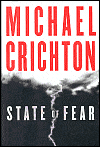can money pay for all the days I lived awake but half asleep?
I have a lot more to say on this subject, but let's get started with an excellent op-ed from the temperate wasteland. From the Wausau Daily Herald:
Deep Throat conversation worth having
Tuesday's revelation that former FBI No. 2 man W. Mark Felt was the news source known as "Deep Throat" sparked predictable yammering on talk radio and in TV pundit-land.
And as expected, much of the talk was banal - the incessant chatter of hosts more concerned with self promotion than any meaningful discussion of how Felt changed the world of politics and journalism.
G. Gordon Liddy, the Nixon operative who engineered the 1972 break-in at the Democratic National Committee headquarters in the Watergate building and was sent to prison for it, told CNN on Wednesday that Felt "violated the ethics of the law enforcement profession."
Leonard Garment, Nixon's chief legal counselor from 1969 to 1973, said the question was "when government persons, having private, secret, confidential information, are justified to become the whistle-blower and defy or ignore their sworn obligation to maintain security and go to the press with it."
Chuck Colson, the White House special counsel who did prison time for his role in the scandal and now is an evangelical Christian broadcaster, said Felt should be held responsible for sparking a political crisis that divided the country.
"Mark Felt could have stopped Watergate," Colson said. "He was in a position of that kind of influence. Instead, he goes out and basically undermines the administration."
And former Nixon speechwriter Pat Buchanan bluntly told MSNBC that he believed Felt is a "traitor."
The blame of all these Nixon apologists is misplaced.
Felt didn't bring the Nixon administration down. Nor did the Washington Post, reporters Bob Woodward and Carl Bernstein or any other single institution.
Nixon resigned after a series of events, including news stories and congressional hearings, made it clear that the highest levels of government were involved in spying on and retaliating against a host of perceived enemies.
Felt was a key figure in the saga, and he was anything but a traitor. He recognized that his primary obligation wasn't to Nixon or the FBI or even the Justice Department. It was to the U.S. Constitution.
But a more pertinent question than whether Felt should be commended or condemned for the role he played is whether his actions even would be possible today.
About 30 American reporters and editors are facing jail time for refusing to reveal the identities of confidential sources. Two already have been sentenced in connection with the investigation into who leaked the name of a CIA agent - though neither reporter was involved in the leak itself.
And as we've seen in recent weeks, when a confidential source recants or is proven wrong, it's not the source who is blamed. It's the reporter who relied upon the source and who then was castigated by those same smug pundits who now are attacking the 91-year-old Felt.
The chilling effect is incontrovertible. It takes courageous reporters and editors to ignore the possibility of imprisonment and public condemnation to report on tough stories of import.
A group of attorneys general from 34 states and the District of Columbia have asked the Supreme Court to step in and clarify rules on "shield laws" that protect reporters from prosecution for refusing to identify sources.
The court should step in - and strengthen those laws. The First Amendment's protection of press freedom is meaningless if the gathering of news itself isn't given equal protection.
Felt's actions a generation ago ultimately led to the resignation of a corrupt president, the indictment of 40 government officials, an overhaul of the nation's campaign finance rules and laws to protect federal whistle-blowers.
But the witch hunts being held today make it increasingly unlikely that whistle-blowers like Felt will come forward or that reporters and editors will have the fortitude to print controversial stories - stories that need to be published.
That's the conversation that the Deep Throat revelation should inspire.







